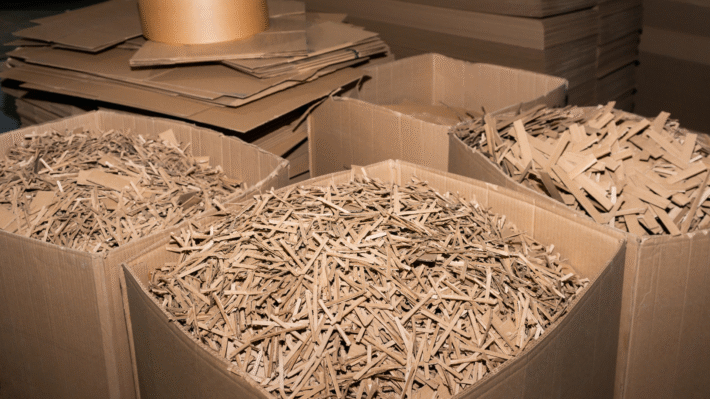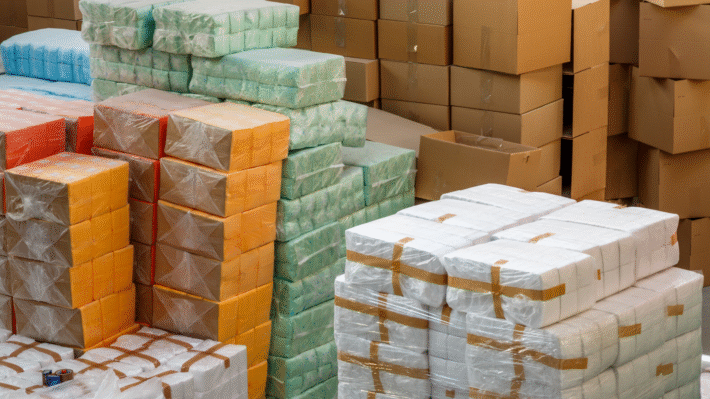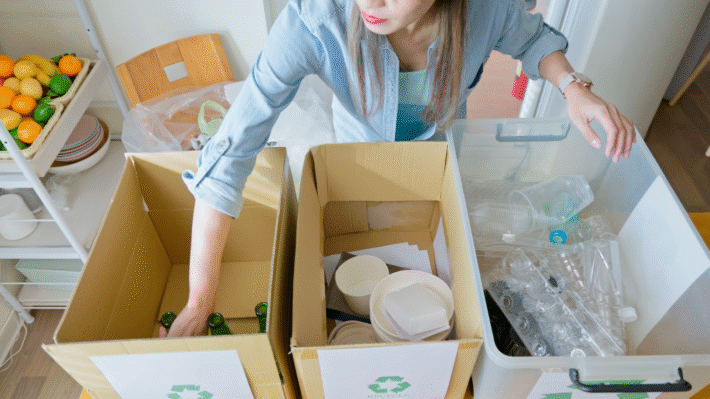Waste Reduction Made Simple with Effective Strategies to Minimize Waste

Let’s take a deep dive into the world of waste reduction and minimization! Imagine a world where we produce less waste, and our planet thrives more than ever. This isn’t just wishful thinking; it’s entirely possible! Getting rid of waste at the source and minimizing material flow is the key to a cleaner planet. It’s about using just what we need, and making less of a mess in the process. Making small changes in our daily lives can bring big results. And the best part? You have the power to make these changes. 🌍 Every little step you take moves us closer to a brighter future where waste is kept in check. Let’s uncover how you can be part of this exciting journey!
Understanding Waste Reduction and Minimization
Waste reduction is a big deal in our world today. Why? Because cutting down on waste helps the Earth. It’s about using less and making smarter choices.
Let’s learn how important it is to reduce waste and how it keeps our planet safe. We’ll also talk about minimizing material flow to make the world a better place.
What Is Waste Reduction?
Waste reduction means using less stuff and creating less trash. It’s about being smart with what we have. When we cut down on waste, we help the Earth. We make it a cleaner and nicer place to live.
Importance of Cutting Waste
Cutting waste is important because it helps save the planet. Less trash means fewer landfills. It also means less pollution. When we cut waste, we protect plants, animals, and water.
Eliminate waste by reusing things at home. Use old jars for storage or turn old shirts into cleaning rags.
Benefits of Less Trash
Less trash means more room for nature. Parks, forests, and oceans stay healthy. People will enjoy clean places to play and explore.
Less trash also means fewer problems for our animals. Birds, fish, and other creatures live better lives. They don’t get tangled in plastic or eat things they shouldn’t.
Why Minimize Material Flow?
Minimizing material flow is another way to protect our planet. When we use materials smarter, we help the environment. We make sure not to waste anything.
Keeping the Planet Clean
A clean planet is a happy planet. Minimizing material flow keeps our world tidy. When we use resources wisely, we leave less mess behind.
Smart material flow stops pollution. Rivers and oceans stay clear and sparkling. Wildlife flourishes when we take care of their home.
Saving Resources
Resources are things we use every day. They can be water, trees, and minerals. When we save resources, they last longer.
Minimizing material flow means using only what we need. It stops depletion of resources and ensures that future generations will have enough.
Remember, every little action helps. By understanding waste reduction and material flow, we’re paving the way for a healthier planet.
Need more help with reducing waste? Check out the EPA’s Waste Management Page, where you can find more tips and tricks to become a waste-reduction hero!
Practical Steps for Reducing Waste
Let’s dive into some practical steps for reducing waste in our everyday lives. It’s easy to make changes that help the planet and save money.
Rethink Everyday Choices
Rethinking everyday choices is a great start to reducing waste. Small changes can make a big difference.
Choose Reusable Over Disposable
One way to reduce waste is to choose products that can be reused. Instead of buying plastic water bottles, get a sturdy reusable bottle. This will cut down on how much trash you throw away.
Another idea is to use cloth bags instead of disposable ones when shopping. You’ll be surprised how much waste you can stop by trying these easy fixes.
Smart Shopping Tips
Smart shopping is all about making wise decisions at the store. Here are some tips:
- Bring a list to avoid buying things you don’t need. This keeps you focused.
- Check for items with less packaging. Less wrapping means less trash later on.
- Look for products that have been made from recycled materials. This supports businesses that are thinking about the planet.
Reduce the Amount of Waste
Another step is to focus on ways to reduce the amount of waste we generate. Let’s look at some tactics.
Avoid Overpackaging
Overpackaging is when products have too much wrapping. To tackle this, choose items with minimal packaging. Opt for fresh produce and avoid items like pre-packaged individual snacks. This simple step can significantly decrease the trash heap you’re contributing to.
Limiting Food Waste
Food waste is a big problem, but limiting it is easier than it seems. Only buy what you know you will eat. Check your pantry and fridge before heading to the store to avoid purchasing duplicates.
A note: Use leftovers creatively. Make a new meal with what’s already there!
By following these tips, you’ll find that your trash can is much lighter. Plus, you’ll feel great knowing you’re doing your part! For more ideas and guidance, visit trusted resources like EPA’s Reduce, Reuse, Recycle page.
Ideas for Preventing Waste at the Source
Do you want to help the planet and make less trash? Let’s talk about preventing waste at the source. Stopping waste before it even happens helps Earth a lot. It’s easy and everyone can do it.
Plan Before Shopping
When you just buy what you need, you waste less. Planning is the key.
Make a List
Start by making a list. Write down what you need before going shopping. This stops you from buying things you don’t really need. No more extra items getting dusty in a cupboard. A list keeps you on track and helps save money too!
This simple step also saves time.
Buy in Bulk When Possible
Buying in bulk is another great tip. When you buy in bulk, there is less packaging. You can have more of the things you use a lot. This means fewer trips to the store. Bulk buying is smart but remember to only buy what you can use. You don’t want things to go bad!
Smart Use of Materials
Using materials wisely helps us cut down on waste. Think before you throw stuff away!
Reusing Boxes and Bags
Reusing is great! Instead of tossing out boxes and bags, use them again. For example, use a bag from the grocery store next time you shop. Boxes can hold stuff at home, organize toys, or be used for crafts and fun projects.
Check out some amazing ideas on how to reuse them here: Cleanriver.com.
Repair Instead of Replace
Stuff breaks. But instead of getting new things, try to repair them. Fix a broken chair leg, sew a torn shirt, or patch a hole in your backpack. Fixing things can be fun and you learn cool skills. Plus, you save money by not buying new stuff all the time.
Remember, the less we throw away, the better our world becomes. Let’s make a big difference by doing small things!
Encourage Others to Reduce Waste
Helping others see the importance of reducing waste can make a big difference. Together, we can protect the Earth and keep it clean for the future. Let’s look at some ways to get involved and educate others.
Community Involvement
Getting the whole community together is a great way to start making changes.
Organize Clean-Up Events
Organizing clean-up events is a fun way to bring people together to clean up parks, beaches, and neighborhoods. You can set a date, invite friends, family, and neighbors, and get started! Everyone can pick up trash and see how much cleaner the area becomes. Clean-ups help keep places looking nice and stop trash from harming animals.
If you want to plan such an event, check out this guide to organizing community clean-ups. It’s packed with tips to make your event a success.
Sharing the Message
Sharing the message about waste reduction is key. Talk to people about why it matters and how they can help. You can make posters or flyers to share at schools, libraries, and stores. Use the power of social media to spread the word online. Tell people about the harm litter and waste can do to our planet.
You can find more ways to share your message by visiting this link. Together, we can inspire more people to get involved and make a change.
Educate Family and Friends
Teaching the people close to us can create lasting habits that reduce waste.
Lead by Example
Lead by example by showing how easy it is to make small changes. Use reusable bags and bottles, recycle, and compost at home. When others see you doing these things, they’ll learn from you. Kids and adults alike can see how these actions can have a big impact.
For more ways to lead by example, check out this resource.
Talk About Positive Changes
Talk about positive changes with your friends and family. Share stories about how reducing waste has helped you or your community. Discuss the good feelings that come from doing something positive for the planet. Everyone likes to hear happy stories, and they might be inspired to try reducing waste, too.
If you’d like examples of positive changes, give this site a visit. It offers plenty of examples and motivational stories.
By taking action and getting others involved, we can make a big difference in reducing waste and keeping our planet green and healthy. Let’s start today!



